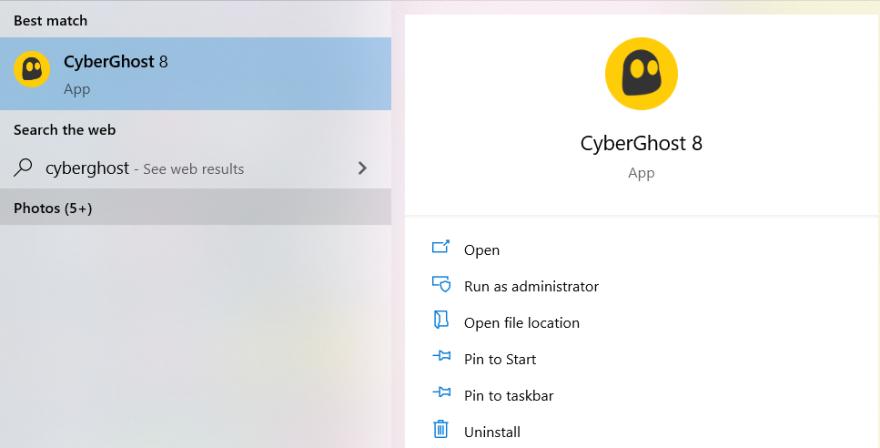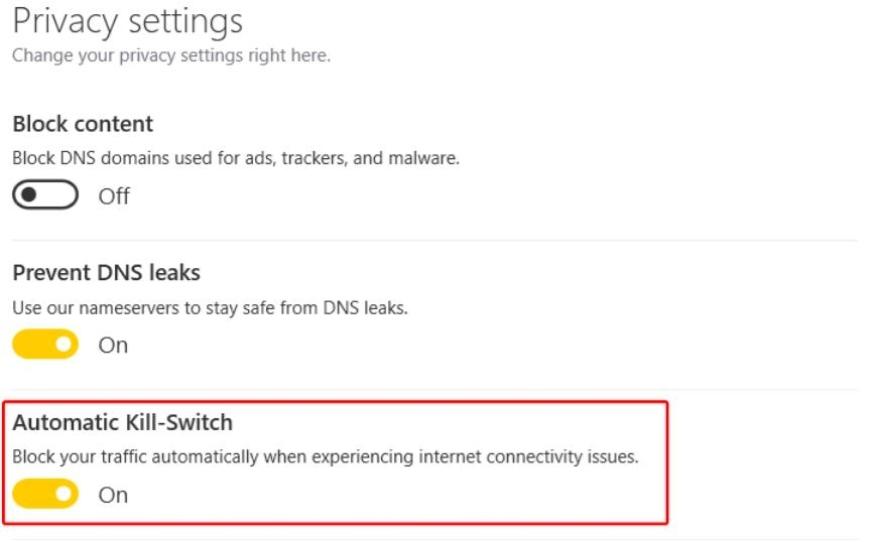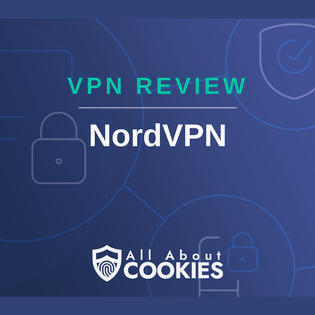Advertiser Disclosure
All About Cookies is an independent, advertising-supported website. Some of the offers that appear on this site are from third-party advertisers from which All About Cookies receives compensation. This compensation may impact how and where products appear on this site (including, for example, the order in which they appear).
All About Cookies does not include all financial or credit offers that might be available to consumers nor do we include all companies or all available products. Information is accurate as of the publishing date and has not been provided or endorsed by the advertiser.
Editorial Policy
The All About Cookies editorial team strives to provide accurate, in-depth information and reviews to help you, our reader, make online privacy decisions with confidence. Here's what you can expect from us:
- All About Cookies makes money when you click the links on our site to some of the products and offers that we mention. These partnerships do not influence our opinions or recommendations. Read more about how we make money.
- Partners are not able to review or request changes to our content except for compliance reasons.
- We aim to make sure everything on our site is up-to-date and accurate as of the publishing date, but we cannot guarantee we haven't missed something. It's your responsibility to double-check all information before making any decision. If you spot something that looks wrong, please let us know.
A VPN kill switch automatically disconnects your device from the internet if your virtual private network (VPN) connection drops. This prevents you from accidentally conducting online activities when your VPN isn’t actively protecting you.
That’s why using a VPN kill switch can improve the functionality of a VPN as a tool that masks your physical location and hides your online activity from prying eyes.
Read on to learn more about what VPN kill switches are, how they work, and how to activate this feature on your VPN.
How does a VPN kill switch work?
When should you use a VPN kill switch?
How do you activate a VPN kill switch?
FAQs about VPN kill switches
Bottom line
What is a VPN kill switch?
A VPN kill switch is a feature included in many VPN services. It ensures your device is always connected to the internet through a secure virtual private network (VPN) connection.
What is a VPN?
Picturing a network that routes your device’s internet traffic through a secure tunnel is an easy way to understand what a VPN is. This type of network privately and securely connects you to the internet and is designed to hide your physical location and encrypt your internet traffic.
When does a VPN fail?
Your connection should be safe and secure when you’re connected to the internet through a VPN.
But your secure connection to a VPN server may sometimes drop without notice, redirecting your internet traffic without masking through your internist service provider (ISP). Your ISP likely tracks your online activity and has your public IP address, which makes you easy to identify.
How does a VPN kill switch keep you secure?
A VPN kill switch comes in handy in situations when your VPN connection unexpectedly drops. If your kill switch detects that your device is no longer securely connected to the internet via a VPN connection, it completely disconnects your device from the internet.
How does a VPN kill switch work?
A VPN kill switch works by disconnecting your device from the internet if your VPN connection isn’t active.
When you first set up a VPN, it’s worth checking your settings to see if the kill switch is turned on. Your default settings may already have it turned on.
If it’s already on, you can expect the kill switch to start performing its functions when you use your VPN service. The kill switch functions may vary depending on your VPN provider, but it will:
- Monitor your VPN connection for any changes
- Detect whether a change could affect your VPN connection
- Disconnect your device or app from the internet if your VPN connection drops
- Re-establish internet access to your device or app when your VPN connection is back
If you don’t want the kill switch to perform its functions, you can simply turn it off. This isn’t a recommended action for the average VPN user since kill switches are intended to help keep your online activity safe and secure, including potentially sensitive data.
When should you use a VPN kill switch?
You should typically use a VPN kill switch whenever you use a VPN. The importance of using a kill switch may depend on the network you’re connected to or the online activity you’re performing.
If your VPN doesn’t come with a kill switch feature, you might want to switch to one of the best VPNs such as NordVPN, ExpressVPN, and Surfshark.
On your home network
Do you need a VPN at home? Most likely, especially if you’re concerned about online privacy.
This is because most ISPs collect loads of data about their customers that they can then sell to interested parties. So even in your own home, you’re not necessarily safe from prying eyes.
A VPN kill switch may help maintain your privacy when your device loses its secure connection. In this scenario, your device wouldn’t automatically connect directly to your ISP if your VPN connection drops. Rather, the device’s internet connection would be severed until you’re able to connect through your VPN again.
On public Wi-Fi
Public Wi-Fi networks are generally frowned upon from an online security standpoint since they provide unsecured connections that carry increased hacking risks. But connecting to one while using a VPN may keep you protected.
If you’re using a VPN with a kill switch enabled, you wouldn’t have to worry about any leaked information if you lose your secure VPN connection. This reduces the risk of being on public Wi-Fi networks, although avoiding them is still recommended.
When using specific apps
There are different levels of VPN kill switches. A system-level kill switch will completely block your device from connecting to the internet until your secure connection is established again or the kill switch is turned off.
But in some cases, you may use an application-level kill switch that only blocks the internet connection to certain apps or software. This could be helpful if you only need a secure connection when using specific apps, such as banking apps, investment platforms, and other software that deals with sensitive data.
How do you activate a VPN kill switch?
The process for activating a VPN kill switch may vary depending on your VPN software, but it generally follows similar steps.
For example, the CyberGhost desktop VPN app for Windows has a VPN kill switch that you can find in the app’s settings by following these steps:
- Find and open your VPN software.

- Navigate to the settings or privacy settings.

- Find the kill switch feature and turn it on.

Keep in mind that this is how to navigate to the internet kill switch option using CyberGhost on Windows. The process is likely similar but not exactly the same if you use a different VPN software or a different operating system such as macOS, Android, or iOS.
FAQs about VPN kill switches
Should I turn on the VPN kill switch?
Yes, you should turn on the VPN kill switch if it’s an option in your VPN software and you’d like a more secure internet connection. A kill switch helps keep your online activity hidden by automatically disconnecting your internet connection if your secure VPN connection isn’t active.
Keep in mind that activating the VPN kill switch will prevent you from connecting to the internet without a secure connection.
Does a VPN kill switch interrupt internet connection?
A VPN kill switch interrupts your internet connection if it detects your VPN connection is no longer active. This is a built-in feature with many VPNs because it helps ensure your internet activity is kept private and secure even if your VPN connection fails. That’s why you may experience internet interruptions due to VPN disconnections.
How can I disable a VPN kill switch?
You can usually disable a VPN kill switch by following these steps:
- Open your VPN client, app, or desktop software.
- Navigate to the settings.
- Find the kill switch setting and turn it off.
These steps may vary slightly depending on your VPN service provider.
Bottom line
A VPN kill switch is a vital security feature included with many popular VPN services. It helps keep your online activity hidden and secure by disconnecting your device from the internet if you lose your VPN connection.
If you don’t want to use a VPN kill switch, you can turn this VPN feature off in your VPN settings. For more online safety tips, learn how to stay safe online.
-
High-quality VPN offering safety and speed
-
Loads of servers for multiple connection options
-
Works with popular streaming services, including Netflix
-
Too many confusing plans





